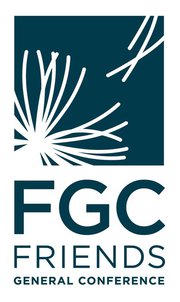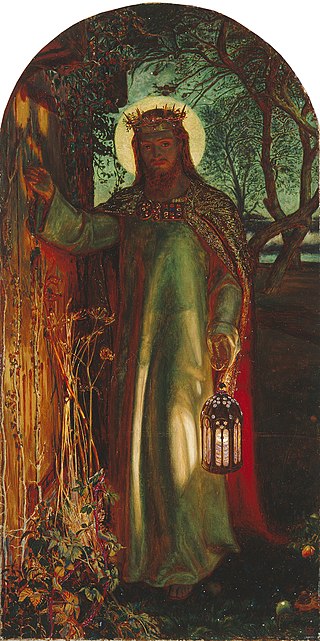Related Research Articles
Evangelicalism, also called evangelical Christianity or evangelical Protestantism, is a worldwide interdenominational movement within Protestant Christianity that affirms the centrality of being "born again", in which an individual experiences personal conversion; the authority of the Bible as God's revelation to humanity; and spreading the Christian message. The word evangelical comes from the Greek (euangelion) word for "good news".
The Holiness movement is a Christian movement that emerged chiefly within 19th-century Methodism, and to a lesser extent other traditions such as Quakerism, Anabaptism, and Restorationism. The movement is historically distinguished by its emphasis on the doctrine of a second work of grace, generally called entire sanctification or Christian perfection and by the belief that the Christian life should be free of sin. For the Holiness movement, "the term 'perfection' signifies completeness of Christian character; its freedom from all sin, and possession of all the graces of the Spirit, complete in kind." A number of evangelical Christian denominations, parachurch organizations, and movements emphasize those beliefs as central doctrine.

Friends General Conference (FGC) is an association of Quakers in the United States and Canada made up of 16 yearly meetings and 12 autonomous monthly meetings. "Monthly meetings" are what Quakers call congregations; "yearly meetings" are organizations of monthly meetings within a geographic region. FGC was founded in 1900.
The views of Quakers around the world towards homosexuality encompass a range from complete celebration and the practice of same-sex marriage, to the view that homosexuality is sinfully deviant and contrary to God's intentions for sexual expression. The Religious Society of Friends (Quakers) is a historically Christian religious movement founded in 17th-century England; it has around 350,000 members. In Britain, Canada, New Zealand and Australia, many Quakers are supportive of homosexual relationships, while views are divided among U.S. meetings. The majority (52%) of Quakers live in Africa, and though views may differ, the Kenyan Church of Friends does not support homosexual relationships.

Inward light, Light of God, Light of Christ, Christ within, That of God, Spirit of God within us, Light within, and inner light are related phrases commonly used within the Religious Society of Friends (Quakers) as metaphors for Christ's light shining on or in them. It was propagated by the founder of the Quaker movement, George Fox, who "preached faith in and reliance on 'inward light' ". The first Quakers were known to sit in silence and meditate on the words of the Bible until they felt the inward light of God shining upon them and the Holy Spirit speaking. The concept was highly important to early Quakers, who taught: "God reveals Himself within each individual's conscience and consciousness by the Holy Spirit, Christ Himself being the Light to illuminate man's sinfulness and lead in the way of truth and righteousness. ... this light is in all men by the grace of God to lead them to Christ, and that the same light will give daily guidance to the Christian."

Elias Hicks was a traveling Quaker minister from Long Island, New York. In his ministry he promoted unorthodox doctrines that led to controversy, which caused the second major schism within the Religious Society of Friends. Elias Hicks was the older cousin of the painter Edward Hicks.
Evangelical Friends Church International (EFCI) is a branch of Quaker yearly meetings located around the world.
The Religious Society of Friends began as a proto-evangelical Christian movement in England in the mid-17th century in Lancashire. Members are informally known as Quakers, as they were said "to tremble in the way of the Lord". The movement in its early days faced strong opposition and persecution, but it continued to expand across the British Isles and then in the Americas and Africa.
There are about 300,800 members of the Religious Society of Friends, or Quakers, in Africa. African Friends make up around 62% of Friends internationally, the largest proportion on any one continent. Kenya has the largest number of Quakers in a single nation – about 146,300 in the year 2012.
Latin America contains approximately 17.5% of the world's Quakers. Latin American Friends are concentrated in Bolivia and Central America. Most of these Friends are evangelical and are affiliated with Evangelical Friends Church International. Friends World Committee for Consultation organizes among them through the Comité de Amigos Latinoamericanos CoAL del Comité Mundial de Consulta de Los Amigos CMCA FWCC.
Yearly Meeting is a term used by members of the Religious Society of Friends, or Quakers, to refer to an organization composed of constituent meetings or churches within a geographical area. The constituent meetings are called Monthly Meetings in most of the world; in England, local congregations are now called Area Meetings, in Australia Monthly Meetings are called Regional Meetings. "Monthly" and "Yearly" refer to how often the body meets to make decisions. Monthly Meetings may be local congregations that hold regular Meetings for Worship, or may comprise a number of Worship Groups. Depending on the Yearly Meeting organization, there may also be Quarterly Meetings, Half-Yearly Meetings, or Regional Meetings, where a number of local Monthly Meetings come together within a Yearly Meeting.
Conservative Friends are members of a certain branch of the Religious Society of Friends (Quakers). In the United States of America, Conservative Friends belong to three Yearly Meetings, Ohio, North Carolina, and Iowa. English Friends affiliated with the Conservative branch tend to use the term Primitive, or Plain. There is no single unifying association of Conservative Friends, unlike three of the other branches of Quakerism in America, represented by Friends United Meeting, Evangelical Friends International, and Friends General Conference.

Quakers are people who belong to the Religious Society of Friends, a historically Protestant Christian set of denominations. Members of these movements are generally united by a belief in each human's ability to experience the light within or "answering that of God in every one". Some profess a priesthood of all believers inspired by the First Epistle of Peter. They include those with evangelical, holiness, liberal, and traditional Quaker understandings of Christianity. There are also Nontheist Quakers, whose spiritual practice does not rely on the existence of God. To differing extents, the Friends avoid creeds and hierarchical structures. In 2017, there were an estimated 377,557 adult Quakers, 49% of them in Africa.
A Book of Discipline may refer to one of the various books issued by a Yearly Meeting of the Religious Society of Friends, setting out what it means to be a Quaker in that Yearly Meeting. The common name for this book varies from one Yearly Meeting to another and includes Book of Discipline, Faith and Practice, Christian Faith and Practice, Quaker Faith and Practice, Church Government and Handbook of Practice and Procedure. Each Book of Discipline is updated periodically by each Yearly Meeting according to the usual practice of decision making within the Religious Society of Friends.

Isaac Crewdson was a minister of the Quaker meeting at Hardshaw East, Manchester. He wrote A Beacon to the Society of Friends, a work published in 1835 which had a schismatic effect on English Quakerism.
Indiana Yearly Meeting is a Yearly Meeting of the Religious Society of Friends, or Quakers.
The New Association of Friends is a Friends (Quaker) organization in the US.
Evangelical theology is the teaching and doctrine that relates to spiritual matters in evangelical Christianity and a Christian theology. The main points concern the place of the Bible, the Trinity, worship, Salvation, sanctification, charity, evangelism and the end of time.
References
- ↑ "2008 Yearbook of American & Canadian Churches". The National Council of Churches. Retrieved 2009-12-03.
- ↑ http://www.nwfriends.org/what-friends-believe/historical-statement/ Archived 2008-01-31 at the Wayback Machine Northwest Yearly Meeting Historical Statement
- ↑ "Beliefs as seen on the FUM website". Archived from the original on 2014-09-08. Retrieved 2014-09-08.